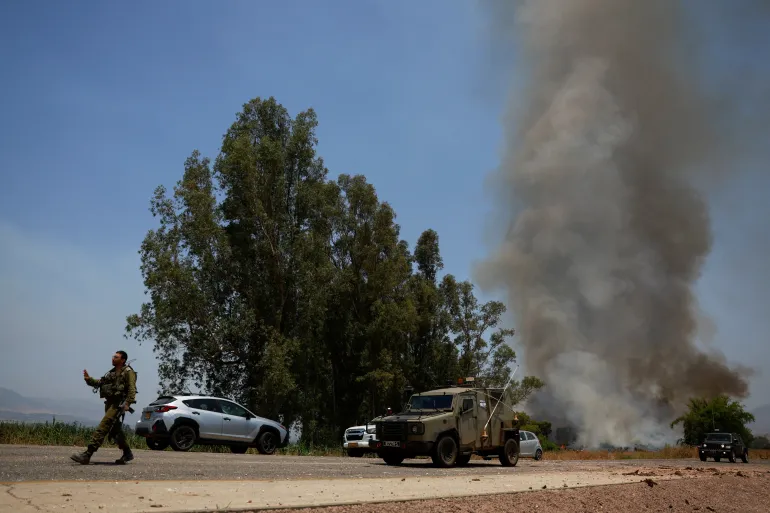
Iran has issued a stern warning to Israel, asserting that any large-scale conflict with Hezbollah would result in Israel becoming the "ultimate loser." This declaration comes as tensions between Israel and the Iran-aligned Lebanese group reach new heights, with both sides preparing for possible escalations.
The situation has grown increasingly volatile since Israel announced it would soon make decisive moves regarding Hezbollah. Iranian officials underscored Hezbollah's capability to defend both itself and Lebanon, cautioning that an imprudent decision by Israel could lead to catastrophic consequences for the region. Iran's mission to the United Nations stated via social media, “Any imprudent decision by the occupying Israeli regime to save itself could plunge the region into a new war, the consequence of which would be the destruction of Lebanon’s infrastructure as well as that of the 1948 occupied territories. Undoubtedly, this war will have one ultimate loser, which is the Zionist regime.”
Israeli Foreign Minister Israel Katz responded with a firm stance, suggesting that a confrontation with Hezbollah might be imminent. KatzSoon we will make the necessary decisions about confronting the Lebanese group, urged the international community to support Israel in its fight against what he termed the “axis of evil” led by Iran and extremist Islam. “” Katz said. He emphasized that Israel’s conflict with these groups is a global issue, asserting, “Our war is also your war.”
Hezbollah leader Hassan Nasrallah has also ramped up the rhetoric, warning of severe and widespread retaliation should Israel launch a major offensive in Lebanon. Nasrallah promised that Hezbollah would use its arsenal of rockets and drones to strike targets across Israel. He declared that any war would be fought without restraint, setting no limits on the extent of Hezbollah’s response.
In a particularly provocative move, Nasrallah extended his threats to Cyprus, alleging that Israel plans to use Cypriot airports and military bases if its own infrastructure is targeted. “Opening Cypriot airports and bases for the Israeli enemy to target Lebanon means the Cypriot government has become part of the war, and the resistance will deal with it as part of the war,” Nasrallah warned. The Cypriot government dismissed these threats, insisting that its relations with Lebanon remain strong.
The fear of a broader regional conflict looms large. Hezbollah has already launched attacks on Israeli military bases in northern Israel since the outbreak of the war on Gaza on October 7. Israel has responded with bombings in southern Lebanon, leading to significant casualties and displacement. The violence escalated further following the death of a high-ranking Hezbollah commander in an Israeli air raid.
The US has expressed its concerns and pushed for a diplomatic solution. “We have made quite clear we do not want to see escalation of this conflict,” said Department of State spokesperson Matthew Miller. Despite this, Hezbollah maintains that it will continue its military actions against Israel until the latter ends its operations in Gaza, which have resulted in over 37,000 Palestinian casualties.
The conflict has already displaced tens of thousands of people in both Lebanon and Israel, transforming once-bustling towns into ghost towns. As the possibility of a full-scale war increases, the international community watches closely, aware that the repercussions could be devastating not just for the immediate region, but for global stability as well. Iran’s warning and Hezbollah’s threats underscore the high stakes and potential for widespread destruction, highlighting the urgent need for de-escalation and a peaceful resolution.











